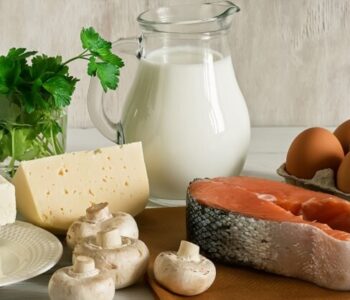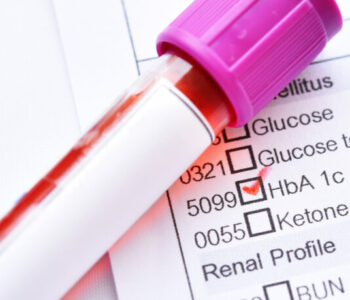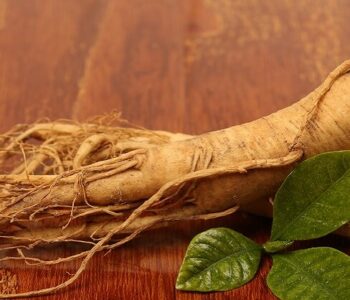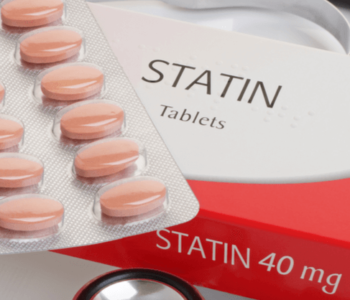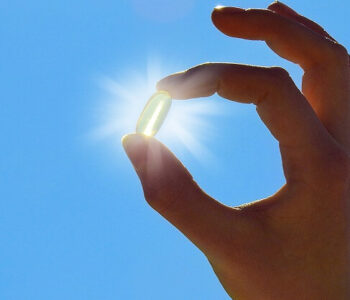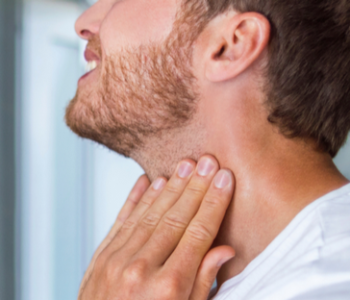In 30 Seconds…
Vitamin D is an essential nutrient associated with certain health benefits. It’s especially important for healthy bones, teeth, and muscles. It can boost your immune system, too.
You can usually get enough vitamin D via direct sunlight, but many of us the world over are showing signs of deficiency due to a range of factors.
One way of getting more vitamin D is to eat the right stuff. Fatty fish, egg yolks, beef liver, and enriched foods and drinks are all great sources of vitamin D.
Vitamin D: The Sunshine Vitamin
Vitamin D is essential for healthy bones, teeth, and muscles because it helps your body absorb calcium and phosphate. Interestingly, it’s also the only nutrient that your body produces when your skin is exposed to direct sunlight. That’s why it’s nicknamed “the sunshine vitamin”.
But here’s the crux: almost half of the world’s population doesn’t get enough sun. And in the UK alone, we’re lucky if our brightest star peeks through the clouds all that often between October and March.
So, to counter this, you need to fill up on your share of vitamin D via your diet — and in this article, we share 8 vitamin D-rich food sources to help you do just that.
Get Your Fill of These Vitamin D-rich Foods
Before we delve into the best sources, let’s clear up how much vitamin D you need every day.
- According to the NHS, adults need 10 micrograms of vitamin D a day.
- From late March/early April until the end of September, most people should get enough vitamin D from direct sunlight on their skin.
- Over the winter months, we may not be outdoors as much, and so we need to top-up our vitamin D intake with certain foods or dietary supplements.
How is the Amount of Vitamin D Measured in Food?
Vitamin D is often displayed in micrograms. A microgram (μg) is 1,000 times smaller than a milligram (mg). You may also see vitamin D measurements written as International Units (IU). 1 microgram equals 40 IU, so the daily recommended intake of vitamin D as International Units is 400 IU.
Now that we’ve run the numbers, what can you eat to get your fill of vitamin D? Let’s take a look:
1. Fish
Fatty fish, like salmon and trout, is a tremendous source of vitamin D. 100 grams of sockeye salmon can contain as much as 12.5 micrograms (500 IU) of vitamin D. 100 grams of rainbow trout, meanwhile, contains over 15 micrograms (600 IU). Other types of fatty fish, such as mackerel and halibut, are also great options.
Whichever you choose, a tasty portion of fish will help you meet your vitamin D quota for the day and then some.
2. Sardines
If fresh fish isn’t your thing, then the canned variety offers a suitable alternative. In particular, tinned sardines are a good source of vitamin D. An 85g tin contains around 6 micrograms or 240 IU — just above half your daily recommended intake.
3. Cod Liver Oil
If you dislike fish of any variety, but you appreciate how packed with nutrients it is, cod liver oil could be the answer. Not only is it full of vitamin D (a teaspoon contains 11 micrograms or 448 IU), it’s also a great source of vitamin A and omega-3 fatty acids.
Just be careful not to overdo it, as too much vitamin A can result in toxicity.
4. Egg Yolks
Seafood isn’t your only option when it comes to getting your fair share of vitamin D. The humble egg is another nutritious source of this essential vitamin. Specifically, the egg yolk, which is where you’ll find the vitamins, minerals, and fat content. The white of the egg is mostly protein.
One large egg contains around 1 microgram or 40 IU of vitamin D. So a three-egg omelette can be a cracking start to the day (pun very much intended) — but it won’t fill your daily quota.
There’s also some debate over whether or not too many eggs can raise cholesterol levels, but that might have something to do with serving them fried with sausages and bacon. Try poached or boiled for a healthier option.
5. Beef Liver
Something of an acquired taste, beef liver is a cheap and easy source of vitamins and minerals, including vitamin D, vitamin A, iron, and protein. Where vitamin D is concerned, a 100-gram serving of beef liver contains 1.25 micrograms or 50 IU.
6. Orange Juice
Vegetarians and vegans rejoice — it’s not all fish, meat, and eggs. The following three options are all great if you’ve sworn off animal products.
Let’s start with a nice glass of OJ. Some brands of orange juice are specially fortified with vitamin D (always check the label). It makes for a refreshing start to the day, not to mention an excellent source of vitamin C. One 225ml serving equates to 2.5 micrograms or 100 IUs of vitamin D.
7. Mushrooms
A staple in a veggie or vegan diet, certain types of mushroom deliver high levels of vitamin D. In fact, many of the mushrooms sold in the UK are now enriched with the vitamin after being exposed to ultraviolet rays (yes, mushrooms also produce vitamin D when they come into contact with sunlight!).
One 100g serving of these enriched mushrooms — which include closed cap, chestnut, and portobello — can contain an adult’s recommended daily value of vitamin D.
8. Fortified Breakfast Cereals
Fortified foods, such as breakfast cereals and oatmeal can help you start your day with a vitamin D fix. Add to that fortified cow’s milk or alternative milk (oat, almond, hemp, soy, etc.) and you’ve got yourself a bowlful of goodness.
For instance, Multigrain Cheerios served with a half-cup of fortified milk will net you 2.25 micrograms or 90 IU of vitamin D — around a quarter of your daily intake.
Why is Vitamin D Important?
As we mentioned at the start of this article, vitamin D is crucial for the absorption of calcium, which is, in turn, vital for maintaining bone health. It can also boost your immune system. But what happens if you don’t get enough?
We’ve taken a deep dive into the symptoms of vitamin D deficiency here, but the top line is this:
- If you don’t get enough vitamin D via a combination of sunlight and diet, it could result in your bones becoming soft and weak (osteomalacia) or your bones becoming brittle (osteoporosis).
- You may also experience muscle weakness, muscle aches, or muscle cramps, and also mood changes, including anxiety and depression.
You’re most at risk of vitamin D deficiency when you’re older (when your skin becomes less able to make as much of the vitamin), housebound, or if you have a darker complexion. If this sounds like you, taking a closer look at your diet is a great place to start. Vitamin D supplements can also help, but you have to be careful not to take too much; more than 100 micrograms (4,000 IU) of vitamin D a day can be harmful.
Vitamin D and COVID-19
In the time before COVID, many of us would get enough vitamin D by simply commuting to work or stepping out for a stroll on our lunch break.
But with the switch to working from home, the government issued guidance to make sure we’re all getting enough. The NHS even offered free supplements to those who needed them most over winter.
At the height of the pandemic, there were reports that vitamin D could reduce the risk of coronavirus, but there’s not enough evidence to support this claim at present.

Help your body fight the good fight
Supplements are all-important when it comes to keeping your health at its best. All our health supplements are formulated by our medical team and packed with the best ingredients out there.
Key Takeaways…
Getting outside and responsibly enjoying the sunshine is a great way of getting your daily dose of vitamin D. However, depending on your circumstances and where in the world you’re reading this, it won’t always be possible to spend time outdoors.
That’s why, for the sake of your health, paying close attention to your diet can be crucial. Adding the above foods to your meal plan will make a huge difference.
And remember, if you’re struggling with the symptoms of vitamin D deficiency, seek medical advice from your GP or healthcare provider.
Get inspired: Check out our Daily Health articles for diet and lifestyle tips and advice.



